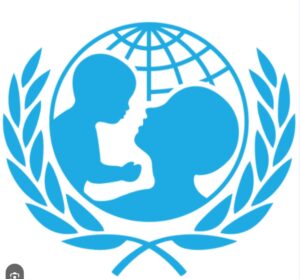
Dutse, Feb.19, 2025
United Nations Children’s Fund (UNICEF) has stated that about 89 per cent of children in Jigawa state experience monetary poverty, while 85.6 per cent are multidimensionally poor.
Mr Rahama Farrah, the Chief of UNICEF’s Field Office in Kano, made this known on Wednesday during the launch and dissemination of Jigawa State’s General Household Survey in Dutse.
He explained that the affected children were facing deprivations in at least three critical areas, including Health, Education, Nutrition, Water Sanitation, Shelter, Access to Information, and Child Protection.
According to Farrah, these figures highlight the urgent need for collaborative action to reduce child poverty and improve the well-being of Jigawa’s children.
Represented by Mr Micheal Banda, UNICEF’s Education Specialist, Farrah lauded the survey as an impressive initiative that reflected the state’s commitment to improving lives in communities by using data to inform decisions.
“UNICEF’s Kano Field Office is proud of the strong partnership we share with Jigawa State across multiple sectors, including Health, Education, Nutrition, WASH, Child Protection, and Social Protection.
“Together, we have achieved significant milestones, such as strengthening systems for measuring child poverty through the recent General Household Survey (GHS).
“We have also supported the development of key policies and action plans, and the capacity building of government stakeholders,” the Chief added.
He further stressed that local government chairmen had a pivotal role to play in shaping the discourse and actions needed, especially to address child poverty in Jigawa, using evidence generated for multisectoral planning.
UNICEF also congratulated the state Governor, Umar Namadi, for the resilience in conducting the Jigawa General Household Survey, which was disaggregated with estimates across the 27 Local Government Areas.
It emphasised the need to strengthen collective efforts in utilising the local government data to inform planning and decision-making.
Additionally, UNICEF called for the design and implementation of structured social protection interventions targeting poor and vulnerable children, as well as the approval of the elaborated social protection policy.
The organisation also advocated for the passage of the revised social protection bill into law and an increased budgetary allocation for child-specific programming across social sectors, based on the available data.
UNICEF further called for the scaling up of birth registration for children below the age of five, with a target to increase the current rate by at least 30 per cent.
Jigawa state, with support from UNICEF, launched and disseminated the state’s recent General Household Survey in Dutse on Tuesday